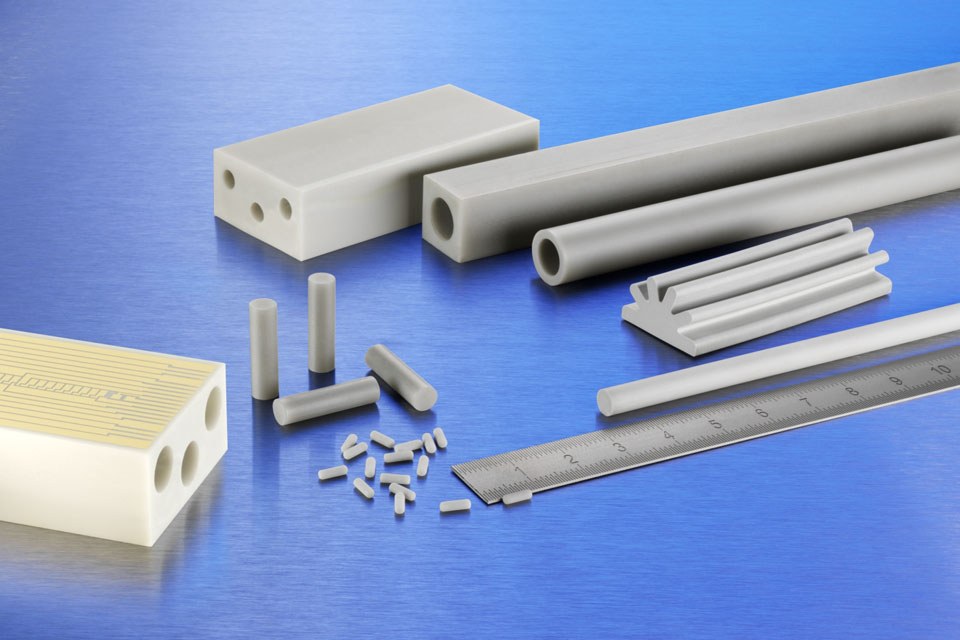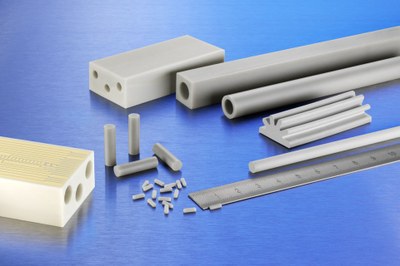Extruded Alunit Ceramics – World Premiere of a New Thermal Management Material
CeramTec GmbH has succeeded in achieving series extrusion of exceptionally thermally conductive aluminum nitride ceramics. This process is the world's first and enables rod-shaped bodies and tube systems made of ceramic with a thermal conductivity of ≥ 170W/mK, high mechanical stability and dielectric strength.
The production phase enables technical reproducibility along with an efficient manufacturing method even for large quantities. Currently, diameters of 0.98mm to approx. 35mm are possible. The minimum wall thickness is 0.2mm; the maximum length is 250mm. With approx. 4.1 ppm/K, Alunit has a thermal expansion coefficient rivaling that of silicon (approx. 4 ppm/K) and also exhibits uniform thermal conductivity and expansion in all directions. It produces virtually no thermal stress in the soldering layer between the chip and the substrate.
AIN ceramics boast a wide range of applications - from passive components and module substrates to liquid cooling. Pairing these properties with a direct metallization, a patented method developed by CeramTec GmbH, brings even more advan-tages to the areas of thermal management, electrical insulation and system reliability.
More on Metallized Ceramics
Ceramic materials are often underestimated. But ceramics, such as Rubalit (Al2O3) or Alunit (AlN), marry two decisive characteristics: electrical insulation and thermal conductivity. Ceramics are dimensionally stable, meet ROHS standards and are corrosion resistant against salt, acid and lye. Fully inert, ceramic material is the last system component to fail. Pairing these properties with a direct ceramic metallization makes things even more interesting. Metallization pads provide bonding surfaces and make it possible to print individual conductor path layouts on all sides. The outlined combination of circuit board and ceramic heat sink for the reliable cooling of thermally sensitive components and circuits is a CeramTec GmbH development known as CeramCool. The ceramic system efficiently deflects heat without creating thermal barriers and measurably relieves the burden placed on components. The simplified construction (no glues, insulation layers, etc.) combined with a direct and permanent bond between the electronic component and CeramCool, e.g. via a soldered joint, create ideal operating conditions for the entire assembly.
Metallizations made of tungsten, tungsten-nickel, tungsten-nickel-gold, gold, silver, silver-palladium, silver-platinum and DCB are available. DCB stands for Direct Copper Bonded – direct bonding of copper films with a ceramic insulator and substrate, generally made of Rubalit or Alunit. It is recommended for high-power electronics applications and high current strengths.


